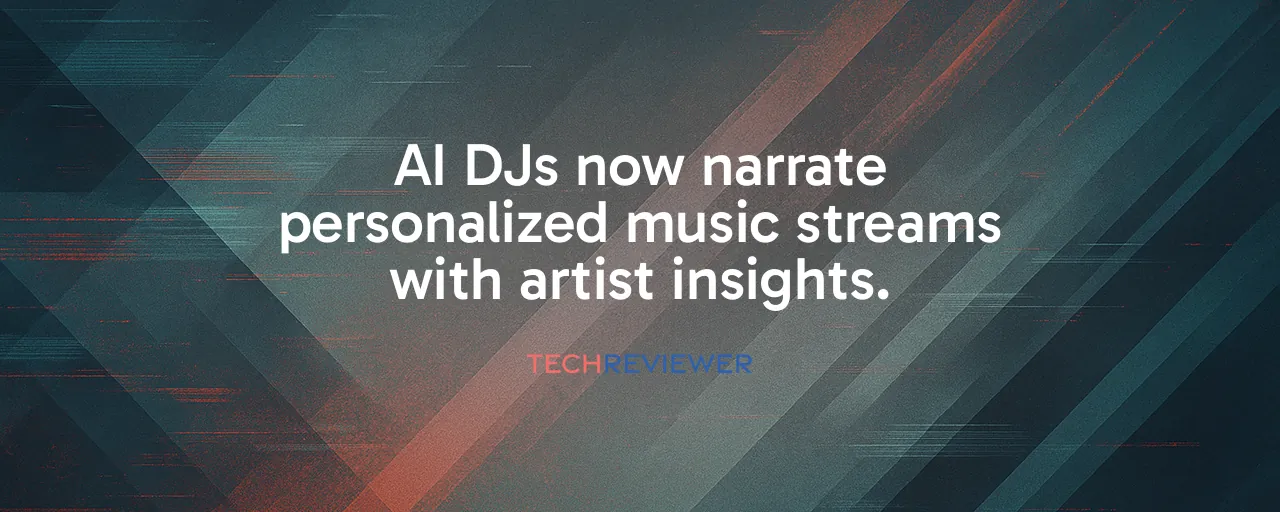Voices That Guide Your Playlist
Streaming music used to mean picking a playlist and hitting play, but now platforms like Spotify and YouTube Music are adding a new layer: AI-powered voices that talk you through your songs. YouTube Music's Beyond the Beat, launched in September 2025 through its experimental YouTube Labs, introduces two AI hosts that sprinkle artist trivia and stories between tracks. Spotify's AI DJ, which debuted in 2023 and expanded with voice requests in May 2025, does something similar, weaving personalized commentary into your listening. These features aim to make streaming feel like tuning into a radio show tailored just for you.
What's interesting is how these platforms use artificial intelligence to mimic the charm of a human DJ. YouTube Music pulls from its vast catalog of artist interviews and fan content to craft tidbits that play every few songs. Spotify blends OpenAI's tech with music editor expertise to deliver intros that match your mood or activity. Early testers of YouTube's feature praise the trivia for adding context without overwhelming the music, while Spotify users enjoy requesting playlists by voice, like asking for chill vibes for a rainy day.
Why Platforms Are Betting on AI
The push for AI DJs comes as music streaming becomes a crowded battlefield. With the global market hitting 62.3 billion dollars in 2025 and 815 million paid subscribers worldwide, platforms need to stand out. Spotify holds a commanding 31.7 percent global share, while YouTube Music captures 9.7 percent worldwide but reaches 28 percent in the U.S., followed by Apple Music at 12.6 percent and Amazon Music at 11.1 percent. Features like AI DJs help differentiate services in a sea of similar song catalogs and pricing plans.
Spotify's AI DJ has seen usage nearly double since adding voice requests, showing users are warming to the idea. YouTube Music, playing catch-up, uses its Labs platform to test Beyond the Beat with select Premium subscribers in the U.S. These AI tools don't just play songs; they analyze your listening habits, skip rates, and even time of day to tailor the experience. For platforms, this boosts engagement, with AI-driven playlists showing 40 percent higher listener retention than traditional ones.
The Artist's Side of the Equation
While users get a slicker experience, artists face a tougher reality. AI-generated music is projected to claim 20 percent of streaming revenue by 2028, potentially cutting into human creators' earnings. Platforms like Deezer already flag 10 percent of daily uploads as AI-made, a sign of how fast synthetic tracks are flooding catalogs. Artists worry that AI commentary, like YouTube's trivia or Spotify's intros, might misrepresent their work or share unverified stories, especially since beta testers report occasional factual errors in YouTube's AI hosts.
Take the case of Velvet Sundown, an AI-generated band that racked up a million Spotify plays before fans realized it wasn't human. This sparked debates about transparency, with over half of listeners wanting clear labels for AI content. Meanwhile, platforms argue AI helps niche artists reach targeted audiences through precise recommendations, potentially leveling the playing field. Still, without clear attribution or consent for using artist data in commentary, tensions are brewing.
What Users Gain and Lose
For listeners, AI DJs bring a lot to the table. They make music discovery easier, especially for those too busy to dig into artist backstories. YouTube's hosts, for instance, weave in tidbits from interviews, while Spotify's AI lets you request playlists for specific moods. Beta testers find the trivia engaging, and visually impaired users benefit from voice-guided navigation. Yet, not everyone's sold. Some find the commentary intrusive, breaking the flow of a workout or study session, and YouTube's lack of a permanent opt-out frustrates those who just want their music uninterrupted.
Privacy is another sticking point. These AI systems rely on deep data dives, tracking not just your song choices but also when and where you listen. This fuels concerns about how much platforms like Google and Spotify share with third parties. Regulations like GDPR in Europe demand clear consent, but users often feel they lack real control. Deezer's approach offers a lesson: its AI detection tags synthetic tracks transparently, building trust. Spotify and YouTube could borrow this to address user skepticism.
Lessons From Spotify and Deezer
Looking at Spotify's AI DJ and Deezer's AI detection reveals different paths. Spotify's feature, launched in 2023, initially stumbled with clunky voiceovers but gained traction after adding voice requests in 2025, doubling engagement. It shows platforms must refine AI to feel natural, not robotic. Deezer, meanwhile, tackled the rise of AI-generated tracks by identifying 10,000 daily uploads as synthetic in 2025. By tagging them, Deezer protects artist revenue and builds user trust, a move competitors haven't matched.
The takeaway? Spotify proves persistence pays off when refining AI, but customization is key. Users want control over features. Deezer's transparency sets a standard for handling AI content, suggesting platforms should prioritize clear labeling and opt-out options. Both cases show AI's potential to enhance streaming, but only if platforms listen to users and artists alike.
Where Streaming Goes From Here
AI DJs are just the start. Platforms are already eyeing multilingual hosts and genre-specific commentary, like jazz or classical experts. YouTube could lean into its video catalog, pairing commentary with visuals for richer experiences. But challenges loom: scaling AI to millions of users demands huge computing power, raising environmental concerns, and privacy regulations will tighten as data collection grows. Artists, too, will push for fair compensation as AI tracks eat into revenue.
For now, Spotify and YouTube Music are setting the pace, but smaller platforms like Deezer show there's room for innovative approaches. The future of streaming hinges on balancing personalization with user control and artist fairness, ensuring the music keeps playing without drowning out the human voices behind it.
